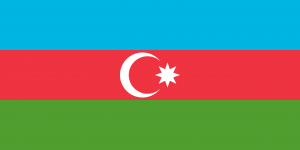Language/North-azerbaijani/Grammar/Adverbs
As a North Azerbaijani language teacher with over 20 years of experience, I am excited to guide you through the next part of our language course. In this lesson, we will be discussing adverbs in North Azerbaijani. Adverbs are an essential part of any language as they add more detail and meaning to a sentence. By the end of this lesson, you will know how to form and use adverbs in your sentences fluently.
What Are Adverbs?
Adverbs are words that modify verbs, adjectives, or other adverbs, giving more information about the verb or adjective they are modifying. They often describe how, when, where, or to what extent an action was performed. In North Azerbaijani, adverbs are generally formed from adjectives by adding the suffix "-cə" to the stem.
Examples:
| North Azerbaijani | Pronunciation | English |
|---|---|---|
| sürətli | /syrætli/ | fast |
| sürətlə | /syrætlæ/ | quickly |
| əla | /ælæ/ | good, fine |
| əla-cə | /ælædʒæ/ | well |
As you can see from the example above, the adjective "sürətli" meaning "fast" changes to "sürətlə" meaning "quickly" when the suffix "-cə" is added. Similarly, "əla" meaning "good" or "fine" changes to "əla-cə" meaning "well".
Types of Adverbs
Adverbs can be classified into different types based on the information they provide. Here are the most common types of adverbs in North Azerbaijani:
Adverbs of Time:
These adverbs indicate when an action is performed.
Examples:
- dün - yesterday
- bugün - today
- sabah - in the morning
- axşam - in the evening
Adverbs of Place:
These adverbs indicate where an action is performed.
Examples:
- burda - here
- harada - where
- ora - there
- yaxınlarda - nearby
Adverbs of Manner:
These adverbs indicate the way or manner in which an action is performed.
Examples:
- yaxşı - well
- pis - bad
- yavaş - slow
- sürətli - fast
Adverbs of Degree:
These adverbs indicate the intensity or degree to which an action is performed.
Examples:
- çox - very
- bir az - a little
- yüksək - high
- aşağı - low
Adverbs of Frequency:
These adverbs indicate the frequency of an action.
Examples:
- hər gün - every day
- zaman-zaman - from time to time
- heç vaxt - never
- çox oldu - long ago
Placement of Adverbs
Adverbs can be placed in different parts of the sentence, depending on the type and the information they provide.
Adverbs of Time and Place:
These adverbs can be placed at the beginning or the end of a sentence.
Examples:
- Dün sən görüşə bilmədi. (Yesterday, he couldn't meet you.)
- Sən harada idin? (Where were you?)
Adverbs of Manner and Degree:
These adverbs are generally placed before the verb.
Examples:
- O, yaxşı oxuyur. (He reads well.)
- Siz çox yaxşı oxuyursunuz. (You read very well.)
Adverbs of Frequency:
These adverbs are generally placed before the verb or after the object.
Examples:
- Mən hər gün idman edirəm. (I exercise every day.)
- Siz heç vaxt mənimlə bərabər deyilsiniz. (You are never with me.)
Irregular Adverbs
While most adverbs in North Azerbaijani are formed by adding the suffix "-cə" to the stem of an adjective, there are a few adverbs that have irregular forms.
Examples:
- çox - very
- elə - so
- belə - like this
- beləsə - like that
Conclusion
In conclusion, adverbs add an extra layer of meaning to a sentence by providing more information about the verb, adjective or another adverb. In this lesson, we learned how adverbs are formed in North Azerbaijani and the different types of adverbs. We also discussed the placement of adverbs in a sentence. With practice, you will become more comfortable with using adverbs in your sentences, making your speech more fluent and informative. Keep learning and improving.

